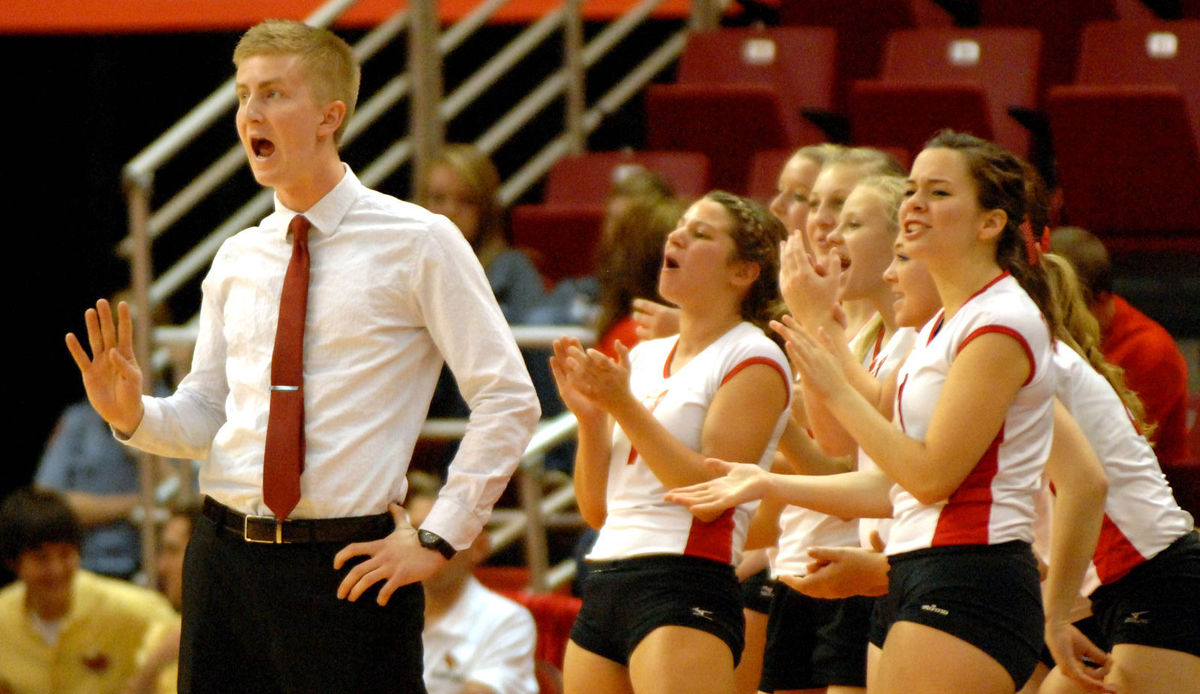Volleyball might look like a simple game on paper, but it’s a complex, physically demanding sport. With that being said, it’s up to volleyball coaches to do what it takes to best prepare their team to compete throughout the season. They say that “practice makes perfect,” but if you aren’t running a good practice, it will only do so much good. Here’s a look at some volleyball coaching tips:
1. Be active, not passive in practice
For best results, practices should be run in an up-tempo manner. In other words, there should be very little time during a practice where players are not actively engaged in some sort of drill or activity. Failure to utilize players throughout practice leads to standing and wasting time, which is not productive.
x
Get the latest Youth Volleyball news
covering the latest events, top athletes, training and equipment tips, and more.
Email *Activate Youth Volleyball newsletter
2. Communicate effectively
As a coach, you can either build or break a player’s confidence and self-esteem. That’s why it’s important to coach in an instructive manner, one that is able to point out a player’s weaknesses, but also help her to improve. Communication is crucial to coaching a volleyball team, both on the practice court as well as in team meetings.
3. Combine drills with scrimmages
Drills are essential to practicing certain techniques and instilling them into your players’ muscle memory. However, it goes without saying that drills can also be tedious and mundane, which can impact a player’s attitude. On that note, it’s important to create a good mix between drills and scrimmages. While the former helps build technique, the latter is usually considered much more fun and can also help players execute the techniques learned in a game-like setting.
4. Encourage proper conditioning
While conditioning is something that you should encourage players to also practice at home, certain conditioning drills should also be incorporated into each practice. While volleyball might appear to be more of a stand still sport, players still need to be in good shape and have good stamina. Hence, the conditioning aspect is crucial.
5. Don’t forget to stretch
Stretching the muscles well before every practice is important and should be included as a regular warm-up activity before the volleyballs come out. Stretching improves flexibility, increases blood flow to the muscle and better allows the joints to work through their full range of motion. Stretching is also proven to reduce injury.
6. Be organized
As a coach, you should know in advance what you want to cover in a practice and what drills you want to put your team through. Be organized and have a plan in place. A lack of organization will likely lead to an inefficient practice, which will not effectively utilize your time or your players. Just like your players should come to practice ready to improve, you should come to practice ready to help them improve.
7. Make practice fun
Volleyball is a game and, after all, games are meant to be fun. What’s more, studies and research show that if a person — or player — is enjoying whatever it is that she’s doing, she’s more likely to be actively engaged in the activity. Often times, this enhanced level of engagement leads to an increased level of success. As a coach, make sure that practice is enjoyable and not a chore. You’ll likely get more out of your players — and they’ll be much more excited about learning and improving.
The onset of autumn means the arrival of volleyball, once again. Here’s to hoping that your players are spending their final days of summer working on their serving, setting, blocking, digging, passing and hitting so that they’re well prepared for the rigors of another fun season when practice commences.
While your players work on their game, it’s a good time for you to reflect on your coaching and determine ways that you can improve to help your team grow. After all, the better coach you become, the more likely your players will also improve.





Have you done this? What can you add to this tip?
You must be logged in to post a comment.